#edward austen knight
Photo
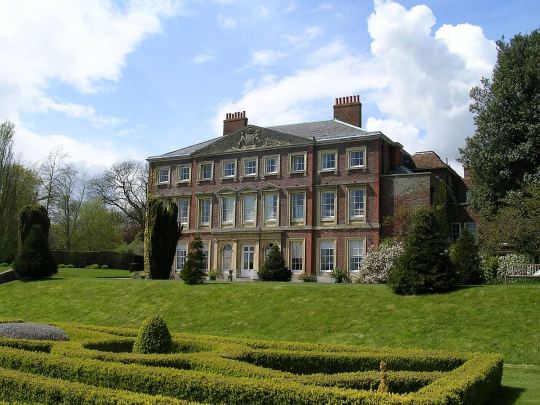
Goodnestone Park via The Real Country Houses That Inspired Jane Austen
#goodnestone park#jane austen#edward austen knight#pride and prejudice#emma#persuasion#northanger abbey#mansfield park#sense and sensibility#stately homes
128 notes
·
View notes
Note
I haven't read much about Jane Austen's personal life, but do you know if at some point in her life she and her family could realistically have been acquainted with someone like Darcy (the almost millionaire nephew of an earl) to get inspiration to write the character?
Darcy is likely better than a millionaire, but to answer your question: yes.
Jane Austen was a member of the gentry and she attended balls and lived in Bath for a time, likely meeting many wealthy people. But more importantly, her brother, Edward Austen Knight, became the heir of a very wealthy family (similar to Frank Churchill in Emma). He inherited three estates and had a yearly income of around £15,000 per year. Here is some more information about him.
Austen also had two brothers in the navy, both of whom eventually became admirals and they attested to the accuracy of her Portsmouth scenes in Mansfield Park. And two of her brothers (I believe) were clergymen just like many of her male characters. She really wrote what she knew!
#jane austen#personal details#question response#I don't do a ton of biography reading#but I do know this!
97 notes
·
View notes
Text
I'm always torn between "am I just defensive over my fave or do they truly Not Get It" when people dismiss Mrs Reynolds's testimony.
I saw a take recently that was like, eh, so he's nice to a handful of people, that makes him marginally less of an asshole in a perfectly common way—and it's like, uh, no, the servants and tenants and family of someone with that much power = a lot of people, actually, any or all of whom could be screwed over by his whims at any moment and never have been.
And the idea that rich, powerful landowners commonly conducted themselves with generosity and concern towards their servants and tenants is absurd. Of course they didn't! Darcy is really the only one of the love interests in Austen's novels with that kind of power, and one of the only characters of that stature to be treated favorably at all, and he only gets away with it because he's Not Like The Other Ones. Even Wickham says:
"It has often led him [Darcy] to be liberal and generous, to give his money freely, to display hospitality, to assist his tenants, and relieve the poor."
Wickham is covering his ass in case Darcy's sterling reputation catches up with him, obviously, but there is a reason that Darcy's reputation is so exceptional. There's a reason Elizabeth is surprised even by something so small as him keeping on a housekeeper who is elderly and not particularly "fine" in appearance.
On top of that, the idea that being dismissive towards strangers but a loving and scrupulous guardian to his dependent sister in particular = an everyday occurrence? Yeah, no. The trope of young women who are exploited, disregarded, or otherwise screwed over by their brothers was really common and reflected an all-too-frequent reality (as discussed by Wollstonecraft!). The reason that well-off male characters' treatment of their siblings and especially their sisters could function so easily as a metric of inner character is because it was so often not the reality.
Men in that rough position were supposed to look after the welfare and interests of dependent sisters, esp orphaned ones—but few could actually make them do it and typically they gained little if anything from doing so. Mrs Reynolds's assertion that Darcy would do anything for Georgiana and his marked affection for her and willingness to defend her, even to older relatives when Georgiana isn't there, forms a contrast not just to the likes of John Dashwood but ... like, honestly, to Edward Austen-Knight as well.
It's not that nobody was ever more like Darcy in this respect, but it was frankly not all that common, and the novel emphatically treats his scrupulous, affectionate care for Georgiana as exceptional and part of his shining reputation.
With regard to his other family members—we don't meet many of them, but Colonel Fitzwilliam's surprise at and mockery of Darcy's current behavior leads Charlotte to conclude that it "proved he[Darcy] was generally different, which her own knowledge of him could not have told her."
This of course foreshadows Darcy proving to be "different" when encountered later. It's not that Darcy's behavior is radically transformed from what's normal for him, but that it's radically transformed from what's normal for him with people outside his (large) circle of family, friends, and dependents. And Austen takes pains to show that he largely reverts back to "old" Darcy when he's uncomfortable. The point of this isn't that his change isn't real, but that it's not some unrealistic total transformation.
The way he treats Elizabeth and the Gardiners isn't alien to his previous characterization. There were always people (whether Fitzwilliam, Mrs Reynolds, whomever) he treated like that. The change is extending that "generally different" conduct to people of much less consequence than himself, but not so much less that he has any particular obligation towards them. He's able to clearly and immediately recognize the Gardiners' virtues, to go investigating a random plant with Mr Gardiner, to form a rapport that will become genuine love for them over the course of his relationship and marriage to Elizabeth.
And a man like Darcy not only marrying a woman with relations in trade, but loving those relations and bringing them to his home as honored guests, is again, not common. Some historians have argued that his choices would be wildly unlikely IRL.
So yeah, no, Darcy isn't just decent towards a few people in a common way, nor nice to the people in his life that anyone in his situation would be, nor is his grand change unprecedented for him and uncomplicated by external factors or only to be expected. In the social world he was created in, he would be an extraordinary person.
#it's funny bc i was just arguing against over-historicization of texts with my advisors#but that isn't the same as total anti-historicization or some bizarro world version where context is reversed#'the text should have priority over theoretical contextualization' sure okay#'we don't need no stinking context only my gut feelings divorced from any kind of reality' ummmm. no.#anyway it's like 5 am and i somehow blasted through this without even getting to lydia but also that is very exceptional#on multiple levels#anghraine rants#austen blogging#austen fanwank#lady anne blogging#fitzwilliam darcy#anghraine's meta#long post
251 notes
·
View notes
Text
Unlisted Fandom Challenge - update
We now have 151 write-in fandoms. Egads.
At the front of the pack it's still Young Royals leading Malevolent and The Queen's Thief, with 911: Lone Star now in a 3-way tie for 4th place with Overwatch and The Owl House. Fifth place is an eleven-way tie -
3 Alex Rider
3 Chainsaw Man
3 Disney's Descendants
3 Erha He Ta De Bai Mao Shizun (The Husky & His White Cat Shizun)
3 Homestuck
3 Justified
3 Lout of the Count's Family / Trash of the Count's Family
3 Miraculous Ladybug
3 Red White & Royal Blue
3 The Legend of Zelda
3 Top Gun Movies
Under the cut is the full list of all write-in fandoms with one or two signups … so far. Write in your own fandom, or sign up for one of these to bump it up the list.
Signups are open through Feb 19!
2 Professional Wrestling
2 Aphmau MyStreet
2 Attack on Titan
2 Between Us
2 Bungou Stray Dogs
2 Carmen Sandiego
2 Destiny 2
2 Dirk Gently's Holistic Detective Agency
2 Escaflowne
2 Gravity Falls
2 Hollow Knight
2 Love in the Air (Thai BL)
2 Not Me
2 NU: Carnival
2 Pokemon
2 Scholomance
2 Stargate: Atlantis
2 Supergirl
2 The Song of Achilles
2 Video Blogging RPF
2 X-men
2 YuYu Hakusho
1 A Series of Unfortunate Events
1 A Voice from Darkness (Podcast)
1 Ace Attorney
1 All The Wrong Questions
1 Animorphs
1 Be Kind My Neighbor
1 Bioshock 1&2 (only)
1 Blood of Youth
1 Blue Exorcist
1 Blue Lock
1 Bug Fables
1 Cabin Pressure
1 Call the Midwife
1 Cats the Musical
1 Citizen Sleeper
1 Cobra Kai
1 Coco Pixar
1 Cosmere (Brandon Sanderson)
1 Crossover Chaos AU (multifandom crossover AU)
1 Cyberpunk: Edgerunners
1 Danganronpa
1 Dead Poets Society
1 Dice Punks (podcast)
1 Digimon
1 Divergent (Movies)
1 Downton Abbey
1 Dragon Ball Z
1 Dragonriders of Pern - Anne McCaffrey
1 Dungeons and Daddies
1 Eerie Indiana
1 Elder Scrolls
1 Emma - Jane Austen
1 Fire Country
1 Firefly
1 For All Mankind
1 Glee
1 Grace and Frankie
1 Greys Anatomy
1 Grimm
1 Guardian/Zhen Hun
1 Gundam
1 Half-Life
1 Hit the floor
1 Howl's Moving Castle
1 Hudson & Rex
1 IDOLiSH7
1 Imperial Radch Series - Ann Leckie
1 Infinity Train
1 Jane Austen (any novel any pairing)
1 Jeeves - P. G. Wodehouse
1 Jojo's Bizarre Adventure
1 Jurassic Park
1 King of Scars Duology
1 Kingsman
1 Les Misérables
1 Los Simuladores
1 Love Between Fairy and Devil
1 Madre Solo Hay Dos
1 Miss Scarlet and The Duke
1 Mob Psycho 100
1 Monochrome Factor
1 Outlast
1 Parasol Protectorate
1 Peacemaker
1 Persuasion - Jane Austen
1 Pride and Prejudice - Jane Austen
1 Psych
1 Qi Ye
1 Ranger's Apprentice
1 Ranma 1/2
1 RPF
1 Sable
1 Sanders Sides
1 Scooby Doo
1 Shadow and Bone
1 Shameless (US)
1 Sidemen
1 Suits
1 Stephen King's IT
1 Tamora Pierce works
1 Tangled the Series
1 Ted Lasso
1 Teen Titans (Animated Series)
1 Temple of the White Rat series by T. Kingfisher
1 The Ancient Magus Bride
1 The Boys
1 The Daevabad Trilogy
1 The Goblin Emperor - Katherine Addison
1 The King: Eternal Monarch
1 The Legend of Drizzt
1 The Lion Hunters Series - Elizabeth Wein
1 The Man From U.N.C.L.E. (2015)
1 The Man From UNCLE (TV)
1 The Tarot Sequence - K.D. Edwards
1 The Terror (TV 2018)
1 The Vampire Diaries (TV)
1 This Way Up
1 Tortall - Tamora Pierce
1 Tower of God
1 Transformers
1 True Blood (TV)
1 Twilight
1 Until We Meet Again
1 UuultraC
1 Valorant
1 Vikings (TV)
1 Vorkosigan Saga - Lois McMaster Bujold
1 Warframe
1 Warrior Nun (TV Show)
1 What We Do in the Shadows
1 White Collar
1 Whiteley Foster's Mansong
39 notes
·
View notes
Text
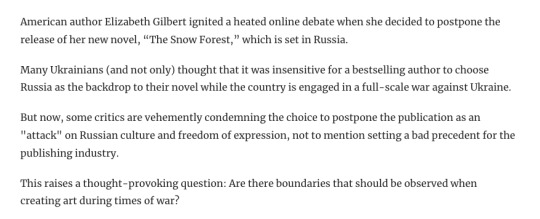
No. Not if the whole raison d'être of one side in the war is that it stands for freedom against authoritarianism and repression. If it's just competing authoritarianisms, each with its own proud "cultural" justification, then I don't care. The remainder of the article is the recrimination against Russia we understandably always hear from the small nations subject to its dominance. I grasp why Ukrainians and others are frustrated that westerners who will stroke their chins thoughtfully when Edward Said discloses the imperial subtext of Jane Austen can't seem to extend the argument to Pushkin. But there are unavoidable complications in each case for the student of politics—imperialism is bad, but resistant ethnonationalisms are not necessarily better—and, for the student of literature, it's a legitimate question as to whether or not we should allow politics the final word in determining our judgments.
Also, and I don't mean to be unpleasant, but I am not personally a party to this war. I have a certain skepticism about the Anglo-American literati's constant hunt for monsters abroad, this "telescopic philanthropy" turned telescopic belligerence, from Byron in Greece to Hemingway in Spain to Sontag in Bosnia to Hitchens in Iraq, as if there were not evils enough at home, if you absolutely must destroy evils, to occupy your time, as if you absolutely need to insert yourself into disputes carried out in languages you do not speak and on behalf of histories you have not inherited. As Ross Barkan has written,
There is a greater horror here, and that’s what this all might mean for the arts in this country. American culture, from the high to the low, has always had a pulsing streak of philistinism. The low goes without saying, and it’s a reality I ultimately forgive—many people work way too hard and have too many distractions to properly appreciate a novel or a painting. It’s high philistinism that will forever infuriate. The Acela class that reads three books a year, two of them about Trump, and believes there isn’t much of an intellectual or even moral difference between binge TV and Don DeLillo. It’s the class of liberal that is most uncomfortable with nuance, that hunts, childlike, for wherever white knights might be. It’s the individual who believes art and politics must be fused, just as the fascists wanted; if the art is not serving the cause, then the art must be discarded, erased.
Putin shouldn't have invaded Ukraine, but this fact does not compel me to rethink either my political stance against censorship (even in its subtler and more invidious manifestations) or my aesthetic appreciation of Pushkin, anymore than America's criminal invasion of Iraq revoked my love for our own national poet, the politically imperial but aesthetically imperious Walt Whitman.
3 notes
·
View notes
Text










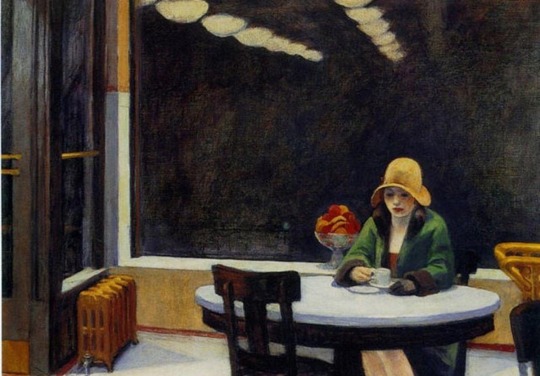
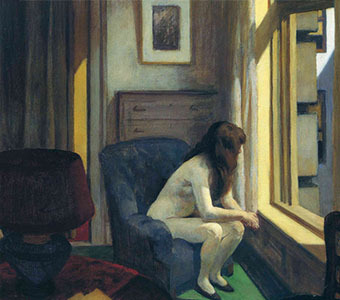
Ernest Hemingway, A Farewell to Arms
Claude Miller, Juliet Dans Paris (1967)
Agatha Christie, Sad Cypress
Jane Austen, Sense and Sensibility
Rhys Knight, A Menial Existence I
Artist Unknown
Sylvia Plath, The Unabridged Journals
George Orwell, 1984
Edward Hopper, Automat (1927)
Edward Hopper, Eleven A.M. (1926)
6 notes
·
View notes
Text
Reading This Week 2023 #9
Finished:
War and Peace by Leo Tolstoy, translated by Constance Garnett, narrated by Frederick Davidson
i can FINALLY talk to my dad about his favorite book! I've done it! i have been powering through the audiobook for WEEKS
Started and Finished:
"Wearable Interfaces, Networked Bodies, and Feminist Sleeper Agents" by Kim Brillante Knight
"IMAGINING FEMINIST INTERFACES: Voice interactions for agency, empowerment, and justice" by Tendernet Collective
"The Transfromation of Silence into Language and Action" by Audre Lorde
"Making a living" by David Selwyn in The Cambridge Companion to Jane Austen, 2nd edition, edited by Edward Copeland and Juliet McMaster
"(RE)FASHIONING MASCULINITY: Social Identity and Context in Men’s Hybrid Masculinities through Dress" by Ben Barry
really liked this way of doing like data driven gender theory! i'm glad i got to read this for one of my classes on the recommendation of the phd student teacher
[more fic than is reasonable for the fatt fic marathon: 51 one fics that were not in my last weekly reading log.]
go look at those posts if you would like to see those in specific, i'm really enjoying this project but also i will admit it is a Lot
Beastars, Vol. 5 by Paru Itagaki, translated by Tomoko Kimura
Started and Ongoing:
The Flash Press: Sporting Male Weeklies in 1840s New York by Patricia Cline Cohen, Tomothy J. Gilfoyle, and Helen Lefkowitz Horowitz
Ongoing:
Emma by Jane Austen
Emma is so funny. she is an incompetent mean girl
Frequency by cryptocism, Chapter 5
3 notes
·
View notes
Text




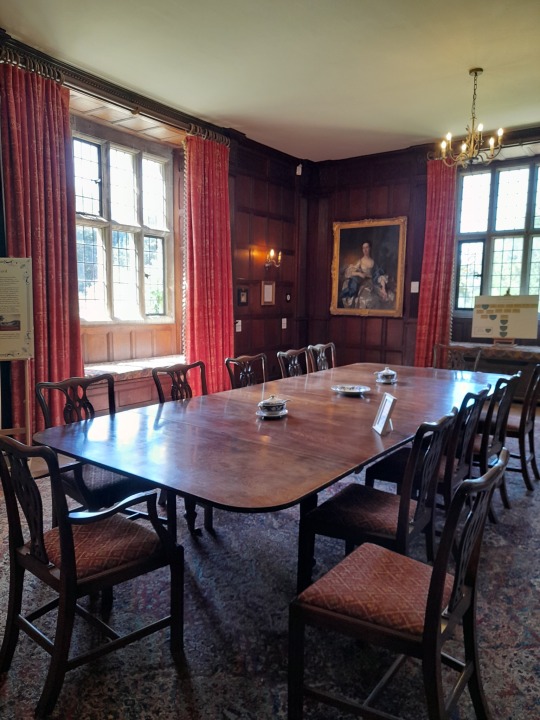

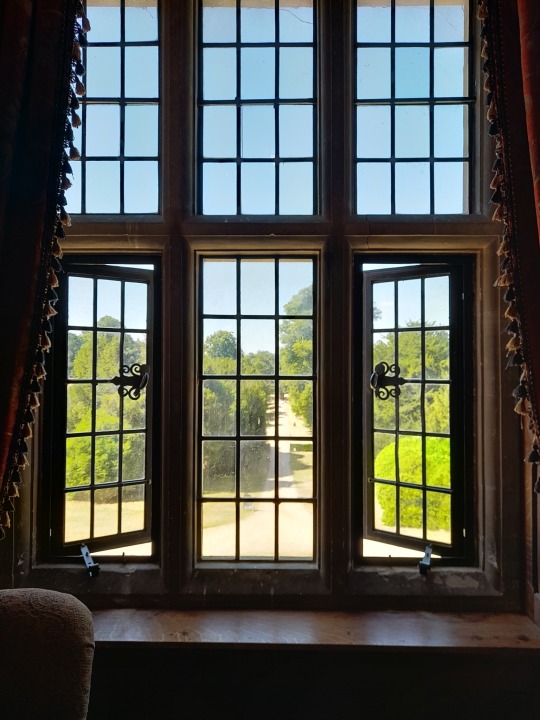
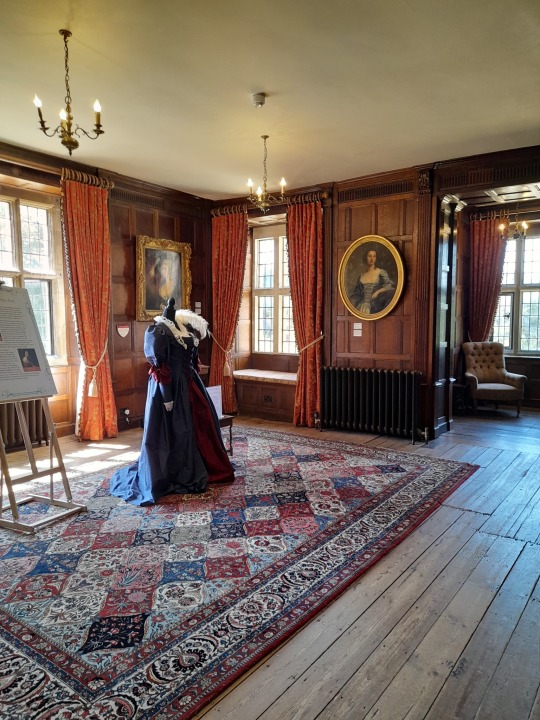
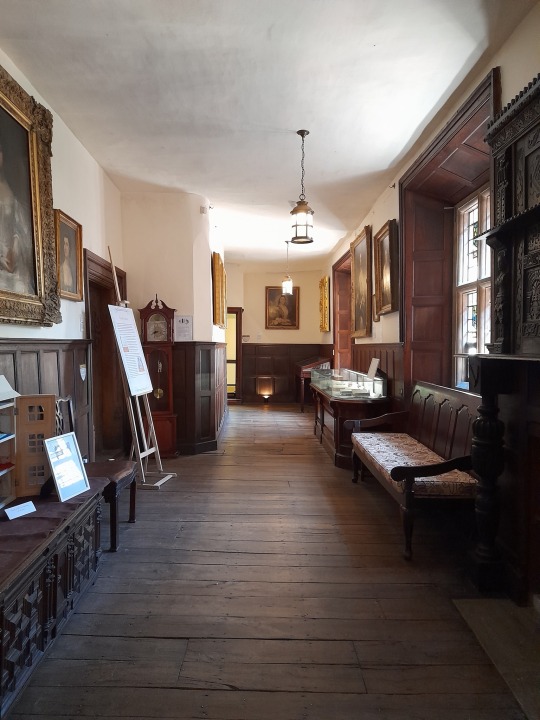

Chawton House, Hampshire, 09/08/2022.
This property belonged to Jane Austen’s brother Edward, inherited from the Knight family into which he was adopted. It now houses a library focussed on female authors.
The fourth photo is of a riding coat worn by Francis (Frank) Austen when he was seven years old. The fifth shows the window in the alcove where Jane is reputed to have liked to sit and read.
#photography#my photos#chawton house#jane austen#unfortunately i don’t think the identity of the lady in the portrait is known#i just liked the painting
6 notes
·
View notes
Text
The Letters of Jane Austen
“I do not want people to be very agreeable, as it saves me the trouble of liking them a great deal.”Jane Austen at her witty, observant, intelligent, and sympathetic best, in this collection of her letters written to family and friends.
Compiled by her niece Fanny Knight’s son Edward Hugessen Knatchbull-Hugessen (the first Baron Brabourne), and edited by Sarah Chauncey Woolsey, this collection…

View On WordPress
0 notes
Text
got tagged by @educationalporpoises (ages ago, whoooops, sorry this took so long!)
rules: tag 9 people you’d like to know better/catch up with.
last song: The Ramblin' Rover by Silly Wizard
currently reading: Edward Wilson's Discovery diary, Spufford's I May Be Some Time, Miller's Dressed to Kill, Knight's The Magnetism of Antarctica, Battersby's James Fitzjames biography, Scott's The Voyage of the Discovery, Ross' acount of his Antarctic expedition, McCormick's account of the same Antarctic expedition + Cunningham's journal from that too, and finally Austen's Emma and Stoker's Dracula
last movie: watched The Holiday (2006) with my fam over Christmas!!
currently watching: on 5th rewatch of Master & Commander
currently craving: idk, for my nose to not be blocked, I'm ill, don't feel like having food at all :'')
tagging: @vastwinterskies @shackletonofficial @robertfalconscott @moonwalkingcrab @laissezferre @veganthranduil @ivorycloudscape @gullbones @horriblesupper if u guys feel like doing this!
1 note
·
View note
Text
Celebrating Austen
by AstraLowelle
Takes place after Knight to E4 (link in notes), but can be read as a stand-alone. Adventures in the drama club with Selina, Edward, and Bruce.
Words: 406, Chapters: 1/1, Language: English
Fandoms: Batman - All Media Types
Rating: General Audiences
Warnings: No Archive Warnings Apply
Categories: Gen
Characters: Edward Nygma, Bruce Wayne, Selina Kyle
Relationships: Edward Nygma & Bruce Wayne, Selina Kyle & Edward Nygma & Bruce Wayne, Selina Kyle & Bruce Wayne, Selina Kyle & Edward Nygma
Additional Tags: Alternate Universe - High School, References to Jane Austen, Theater Kids, High School Plays, Protective Selina Kyle, Other Additional Tags to Be Added
source https://archiveofourown.org/works/43639135
0 notes
Text
adopt a distant relation as your heir
51 notes
·
View notes
Text
Jane Austen, the Artful Tax Dodger

The 16th of December marks another birthday for novelist Jane Austen (1775-1817), whose stories are shot through with monetary specifics, great and small, and feature women who, like herself, are forced to economize in the face of primogeniture and narrowing family circumstances. Hiding in plain sight, one object from Austen’s own household at Chawton, which consisted of four women, reveals the untold trouble taken to also skirt taxes.
Restored in 1998, the half-size, spindle-back gig shown above is on prominent display at the cottage in Chawton, now a museum known as Jane Austen’s House, where Jane Austen resided with her mother, sister, and friend Martha Lloyd from 1809 until 1817. The shafts at the front of this one-seat, two wheeled, two-person vehicle are too small to fit a horse, sitting low and measuring only five feet from end to end. Yet what looks at first glance like a child’s pony trap was used by the adult author, whom we know from a surviving article of clothing, her silk pelisse, to have been between 5’6” and 5’8” tall. The wee rig sits on a raised platform, where it is somewhat grandly identified as “Jane Austen’s Donkey Carriage.” This is how Austen herself half-jokingly referred to her unusual mode of transport in letters to a nephew. Many nephews and nieces were familiar with the sight of their aunts riding back and forth to Alton in the bespoke conveyance that Edward Austen Knight had especially made “soon after” his mother and sisters arrived at Chawton in July of 1809. With this gift, Edward must have hoped to modestly extend their independence beyond the distances the women could walk, whilst sparing boots and petticoats from muddy roads bestrewn with dung. In her novels and letters, Austen uses the term carriage generically to refer to any and all passenger vehicles, so while “Donkey Carriage” is not technically an oxymoron it surely winks at holding the reins of a lowly donkey rather than a proper horse. The Austen family could also delight at how this gig cleverly avoided two standard tax burdens attached to vehicle ownership.
READ MORE
27 notes
·
View notes
Text
It's back ... time for the Unlisted Fandom Challenge
At something over 5 days of signups, we have 109 write-in fandoms! You can sign up to write for any of these and move them up the leaderboard, or write in your fandom if it's not here. We'll update again with info on which fandoms are moving up the rankings, and all the new write-in fandoms every couple of days, moving to daily updates as the deadline for signing up approaches.
Signups are open through Feb 19!
The full list under the cut.
6 Malevolent (Podcast)
4 Overwatch
4 The Queen's Thief
3 Alex Rider
3 Chainsaw Man
3 Disney's Descendants
3 Erha He TA De Bai Mao Shizun (The Husky & His White Cat Shizun)
3 Justified
3 The Legend of Zelda
2 Wrestling RPF
2 Aphmau MyStreet
2 Attack on Titan
2 Between Us (2022)
2 Destiny 2
2 Dirk Gently's Holistic Detective Agency
2 Gravity Falls
2 Love in the Air (TV 2022)
2 Not Me
2 NU: Carnival
2 Pokemon
2 Red White & Royal Blue
2 Scholomance
2 Stargate: Atlantis
2 Supergirl
2 The Song of Achilles
2 Top Gun: Maverick
2 Video Blogging RPF
2 Warrior Nun
2 YuYu Hakusho
1 A Voice from Darkness (Podcast)
1 Be Kind My Neighbor
1 Bioshock 1&2 (only)
1 Blood of Youth
1 Blue Exorcist
1 Bungo Stray Dogs
1 Call the Midwife
1 Cats the Musical
1 Citizen Sleeper
1 Cobra Kai
1 Coco Pixar
1 Cosmere (Brandon Sanderson)
1 Danganronpa
1 Dead Poets Society
1 Dice Punks (podcast)
1 Digimon
1 Divergent (Movies)
1 Downton Abbey
1 Dragon Ball Z
1 Dragonriders of Pern - Anne McCaffrey
1 Dungeons and Daddies
1 Eerie Indiana
1 Emma - Jane Austen
1 Firefly
1 For All Mankind
1 Grace and Frankie
1 Greys Anatomy
1 Grimm
1 Half-Life
1 Hollow Knight
1 Howl's Moving Castle
1 IDOLiSH7
1 Imperial Radch Series - Ann Leckie
1 Infinity Train
1 Jeeves - P. G. Wodehouse
1 Jojo's Bizarre Adventure
1 King of Scars Duology
1 Lout of the Count's Family / Trash of the Count's Family
1 Love Between Fairy and Devil
1 Madre Solo Hay Dos
1 Suits
1 Mob Psycho 100
1 Monochrome Factor
1 Outlast
1 Parasol Protectorate
1 Persuasion - Jane Austen
1 Pride and Prejudice - Jane Austen
1 Psych
1 Qi Ye
1 Ranma 1/2
1 RPF
1 Sable
1 Sanders Sides
1 Shadow and Bone
1 Shameless (US)
1 Sidemen
1 Ted Lasso
1 Temple of the White Rat series by T. Kingfisher
1 The Ancient Magus Bride
1 The Daevabad Trilogy
1 The King: Eternal Monarch
1 The Legend of Drizzt
1 The Lion Hunters Series - Elizabeth Wein
1 The Man From U.N.C.L.E. (2015)
1 The Man From UNCLE (TV)
1 The Owl House
1 The Tarot Sequence - K.D. Edwards
1 The Vampire Diaries (TV)
1 This Way Up
1 Tortall - Tamora Pierce
1 Tower of God
1 Transformers
1 True Blood (TV)
1 Twilight
1 Until We Meet Again
1 UuultraC
1 Warframe
1 What We Do in the Shadows
1 White Collar
1 Young Royals
#fth 2023#unlisted fandom challenge#signups are open!#watch this space for a snapshot of the listed fandoms coming soon ...
47 notes
·
View notes
Text
“...Snobbery, an eighteenth-century constant, was a consequence of a society that was at once “emulative” and keen to limit the consequences. A viscount was a rank considerably above an ordinary lord, let alone a knight, but the wives of both were called ladies. However, although Eleanor was now a viscountess, it was not a normal form of address, and it certainly was not used between family members unless they were reserved and lacking in affection. Alongside the awareness of social difference between nobility and gentry, the absence of serious tension between them was an important feature of landed society and a crucial aspect of stability. This was very much part of the world depicted by Austen, although she was aware of tensions, real and possible.
The nobility and gentry formed a homogeneous group that was often educated together and then intermarried and socialized together—a situation that was helped by the inheritance of noble status only by the eldest son. His brothers, therefore, were gentry. This group, however, was not a social class, as the later sense of class identity was weak and was overlaid by other elements of social identity. Although not part of this group, the middling orders generally cooperated with the landed elite in order to achieve their objectives. This wide-ranging alliance was important to a sense of national superiority and was seen as of broader significance in British society.
Confronting the challenge of the French Revolution, John Trevor, British envoy to Savoy-Piedmont, accurately reported from Turin in 1792: “The misfortune is that in this country [Savoy-Piedmont] the whole society is divided into two classes, the Court and Nobility, and the Bourgeoisie, and the line drawn between them is so rude and marked that the two parties have long been jealous and might too easily become hostile; there are none of those intermediate shades which blend the whole together into one harmonious mass as in our happy country.”
Elite dominance was not free from tension and challenge. It could be qualified by strong traditions of popular independence, especially in the major towns; by activism from part of the propertied “middling orders,” including the impact of moral reform on elite practices; by the porosity of social boundaries and the related constant renewal of power structures; and by the existence and complexities of divisions within the elite. These divisions were such that, except in the revolutionary crisis of the 1790s, the elite did not feel compelled to unite in politics in order to fend off a challenge from below.
At the same time, reciprocal assumptions of paternalism and subordination were significant and helped maintain elite dominance and the alliance on which, in part, it rested. Command of local government—indeed, total command in many respects—by the elite reflected their position in local society. Justices of the peace (JPs), such as Mr. Knightley in Emma and Austen’s brother Edward, were the crucial figures in local government and in the maintenance of law and order, and the bench of JPs, all male, was dominated by the gentry, as well as by the Anglican clergy toward the end of the century. Knowledge of the activities of JPs, both family members and those of the locality, ensured that Austen was in a position to write about them.
At the Coles’ party in Emma, Frank Churchill notes “that his father, Mr Knightley, Mr Cox, and Mr Cole, were left very busy over parish business.” Subsequently, news of the presence of a gypsy group is sent to Mr. Knightley, for, as reported, their activity should lead to arrest and imprisonment, while Mr. Knightley hears of the engagement of Jane Fairfax and Frank Churchill at the end of “a few lines on parish business from Mr Weston.” Other local officials, notably poor law guardians and churchwardens, looked to the JPs. As commissioners, the gentry were also the crucial figures in the local allocation of the Land Tax, which was paid by all landowners, including peers, unlike the considerable tax immunities of much of the Continental nobility.
More generally, Austen is careful to provide details of capital wealth and, even more, incomes, and that information helps offer a moral point as it indicates an individual’s capacity to do good, as well as throws light on other aspects of his or her character. Those who can be variously termed the middling orders or ranks, or the middle class, are (and were) difficult to define, but they tended to emphasize values of professionalization, specialism, and competence that helped define their social function and presence. At the same time, these groups could be concerned with hierarchy and background, an aspiration to gentry status, and snobbery.
The wealthy Bingley sisters “were in the habit of spending more than they ought, and of associating with people of rank; and were, therefore, in every respect entitled to think well of themselves and meanly of others. They were of a respectable family in the north of England—a circumstance more deeply impressed on their memories than that their brother’s fortune and their own had been acquired by trade.” Thus, their social origin was not grand, as was that of Darcy and Fitzwilliam, the latter a name redolent of connection.
They came from the landed aristocracy, even if both are cadets in the shape of a younger son of an earl (Fitzwilliam) and his wealthier cousin, Darcy, who was not a victim of primogeniture, as was Fitzwilliam. The sisters wanted their brother to purchase an estate, rather than being only a tenant who was wealthy enough to purchase one. Miss Bingley is particularly harsh in conversation with Darcy, attacking local society as represented by Sir William Lucas’s party: “The insipidity and yet the noise; the nothingness and yet the self-importance of all these people!”
Mr. Weston might be happy to “marry a woman as portionless even as Miss Taylor,” but others were more sensitive to these issues. The expansion and growing profitability of the economy led to growth in the middling orders, and some rose in status, as with Sir William Lucas in Pride and Prejudice. However, at the individual level, there was also much fragility, as well as ambition, in status and position, as Sir William shows with his obsessive reference to having been received at court, which would have been by George III. This period did not have the protection offered today by insurance and pensions.
More generally, attempts to associate together in order to provide a measure of security could offer only limited protection. It has been argued that there were signs of a new ethos in literature, in contrast to supposedly aristocratic habits of self-indulgence. However, it is important not to exaggerate the significance of such ideas. They were neither new nor politically pointed and significant, and much of the landed elite would have accepted these ideas. Marriage was a key means not only to the acquisition of status but also the inheritance of property. Indeed, marriage brought landed society at all levels into play and extended to the royal family, which helped lead to the 1772 Royal Marriages Act.
The Regency crisis under George III in 1788–89, and the subsequent establishment of George, Prince of Wales, as the prince regent in 1811, drove the question of unworthy heirs to the fore. This element played out very differently in the two crises, but each was significant to the politics of Austen’s life and also focused attention on issues of succession, their unpredictably, and the suitability of heirs. These issues were repeatedly important to her novels. Primogeniture—inheritance by the eldest son, a key ethos and practice in landed society—created an important distinction within the apparent monolith of the old order.
As matrimonial options, eldest sons, the heirs, were very different from “the spares.” Thus, Charles Musgrove differs from his wife on the suitability of Charles Hayter as a connection, their difference reflecting factors that could play a role. His wife was decided in her opinion: “Nothing but a country curate. A most improper match for Miss Musgrove, of Uppercross.” Her husband, however, would not agree with her here; for besides having a regard for his cousin, Charles Hayter was an eldest son, and he saw things as an eldest son himself. . . . “He is the eldest son; whenever my uncle dies, he steps into a very pretty property.”
…The general situation obliged younger sons to define and support their own position and made the disposal of wealth acquired outside this constraint more significant. Younger sons went into the military (as with the likeable and observant Colonel Fitzwilliam in Pride and Prejudice), the Church (meaning the Church of England), and “trade.” The marital choices of younger sons were affected by their social position as members of the elite. The marriage of the sons of land with the daughters of commerce was a standard way to obtain wealth, particularly for younger sons.
However, eldest sons could do the same, and were bigger prizes, especially as they offered a title that would enhance the woman in question as well as her family. Mary Crawford thinks that “Lord Edmund or Sir Edmund sound delightfully; but sink it under the chill, the annihilation of a Mr.—and Mr. Edmund is no more than Mr. John or Mr. Thomas.” She later adds, “A poor honourable is no catch.” Less frequently, the daughters of land married the sons of commerce. This practice cost less in dowries than the daughters of commerce marrying the sons of land. However, assumptions are not necessarily fulfilled.
William Elliot does not marry Elizabeth Elliot as she wishes. Instead he “purchased independence by uniting himself to a rich woman of inferior birth,” the daughter of a rich grazier, which is taken as a snub to the Elliot blood. Years afterward, when his wife is dead, the prospect of Anne Elliot marrying him apparently arises. This would have restored the family home to Kellynch and the title of Lady Elliot to the family. However, this prospect only exists in Lady Russell’s imagination. Marital conventions were less exclusive than on the Continent but still existed and were expressed in, and greatly compounded by, snobbery.
At the same time, there were serious concerns about the system that could be expressed in fiction by the authors and experienced by the readers. In Charlotte Smith’s first novel, Emmeline, The Orphan of the Castle (1788), the eldest daughter of Lord Montreville is secretly married to the younger son of the villainous Croft family, who, as lawyers, are lower in status but seek her fortune. Despite snobbish disdain for “trade,” a disdain that affected the acceptability of figures such as Samuel Whitbread in real life and Mrs. Jennings in Sense and Sensibility, the sons of land were allowed to marry the daughters of commerce.
…In Austen’s essentially conservative novels, it is not so much the sons of commerce and the daughters of land, but rather the sons of land who marry “beneath them,” which was the alliance that was most acceptable to social norms, both in terms of traditional pejorative ideas of gaining the money of commerce and with reference to more recent sentimental concepts. Moreover, Austen shows, with Darcy and Elizabeth Bennet, that the idea of marrying “beneath” a rank, at least at this level, is of only limited value as it is. It is clear that a happy future for the couple is anticipated, and the entire story is of social distinctions and mental rigidities overcome.
…Tory distrust of commerce is indicated in Austen’s work, as in Emma’s disdain for what she knows and imagines about the antecedents of Augusta Hawkins, Mr. Elton’s intended: “She brought no name, no blood, no alliance . . . the youngest of the two daughters of a Bristol—merchant of course, he must be called.” The last suggested distrust of any background in commerce. Emma is a terrible snob, but the novel shows that she is correct to dislike Augusta.
From a different direction to that of Toryism, William Godwin, a radical writer, claimed in 1805 that money had taken over: “I saw that the public character of England . . . was gone. I perceived that we were grown a commercial and arithmetical nation. . . . Contractors, directors, and upstarts,—men fattened on the vitals of their fellow-citizens—have taken the place which was once filled by the Wentworths, the Seldens, and the Pyms.” Thomas Carlyle (1795–1881) was to make a similar observation from a more conservative perspective. He focused on the significance of what he termed in Chartism (1839) “cash payment . . . the universal sole nexus of man to man.””
- Jeremy Black, “Rural England: The Epicenter of Austen’s World.” in England in the Age of Austen
10 notes
·
View notes
Text
**SANDITON SPOILERS**
I really enjoyed season 2 of Sanditon and I can’t wait for season 3 now.
I’m so mad that basically every man proved to be horrible, and even Mr. Colbourne is so emotionally stunted he couldn’t properly confess his feelings. That random dude from Charlotte’s hometown feels like it came out of nowhere, but maybe he was in the first episode and I just forgot. Either way, I know he’s basically just there to set up conflict for season 3, so I’ll deal with it for now.
I knew from the start that Clara would probably give up George. I’m glad she eventually really felt love for him, I’d be so sad if she didn’t since her postpartum depression made her feel numb towards him. Choosing to give him to Esther was definitely the best decision for all three of them, and showed how much she loved him, but it still made me both sad for Clara and happy for Esther. But I guess also happy for Clara since she never truly would have been happy as a mother, so it’s better for her this way too even if it was a hard decision. I actually nearly cried over that scene. I’m really happy it’s all working out for Esther after all the pain Edward put her through.
Edward sucks. That’s not new. He’s just somehow worse than we even thought. Thank god Lady Denham’s gonna torture him.
Colonel Lennox... I am disappointed in him because after episode 1 I think I did like him more than Colbourne. Then he fell more and more out of my favor, then the “it felt like Lucy was in my arms again” comment made me want to punch him through my screen. And the “proposal” to Charlotte made me want him to die by the end of the series if possible. So I’m glad he got what was coming for him, but he deserves more punishment. Hopefully he didn’t just lose all that money but also lost the respect of his troupe.
Captain Fraser. From episode 1 I preferred him over William (whose last name I can’t remember right now, and I literally didn’t learn his name was William until Alison said it in the finale, I paid that little attention to him). The whole season I was like “Go for the one with the scar. He’s cuter and his accent is better.” and of course not to mention the poetry and the honorable acts in war, etc etc. Very glad he and Alison got a happy ending. Also very glad he’s no longer serving under Lennox.
Charles Lockhart felt like a personal betrayal. I gotta stop feeling affection for characters played by actors I already know. Especially when it comes to knights from Merlin in Regency dramas apparently. First Rupert as Jack Featherington in Bridgerton, I spent the first half of that season thinking he deserved better than courting Cressida Cowper and being manipulated by Lady Featherington, but by the end I was like “Nah Cressida dodged a bullet and thank god for Lady Featherington’s manipulativeness.” I truly thought that Alexander as Lockhart would be the former knight to play a good Regency guy. I was really loving Lockhart and his seemingly genuinely love for Georgiana. But no. He’s a racist and he called my girl a mulatto. Great.
Speaking of racism. Despite the Lockhart stuff, I loved what they did with Georgiana this season and I want more. I loved that she chose to wear her hair out for her portrait. I’m glad her mom is hopefully still out there somewhere, and I hope we meet her in season 3. And I’m actually glad the term mulatto was used. I myself am mixed with a Black mother and white father, and if there’s one thing I would go back in time to ask Jane Austen, I’d ask her what her plan for Miss Lambe was. Basically everything after the first episode (or maybe 2nd episode) of season 1 has been speculation since that’s where Austen’s originally stopped writing. Miss Lambe gets mentioned in Chapter 9 of the 12 chapters, and her name only shows up 10 times. I have no clue what direction she was going to go with her “half-mulatto” (quarter Black) character, but I long to know. The show made Georgiana half-Black instead of a quarter, and I’ve always said I like the change, and I don’t mind that Crystal isn’t a mixed actress while playing her. I could go on longer about this, and I think I have in the past in tags on other posts, but I’d have to find them to make my thoughts truly coherent. Basically, Georgiana’s great, she deserves the world, and I’m glad the Parkers are there to love and support her.
Also, Georgiana and Arthur’s friendship is still my absolute favorite thing about this show.
Charlotte’s story isn’t done yet, and I hope she gets a real happy ending. They aren’t going to have her marry that guy by season 3, they can’t unless they want Charlotte to cheat on him, and they wouldn’t do that. That would be an insult to Austen’s memory to have her main character be unfaithful. He’s definitely not the one she’s meant to be with, so it will have to end up being a long engagement, then broken off whenever Colbourne comes to his senses.
Or better yet. Mr. Stringer comes back in the picture too.
(I know that Season 2 and 3 must have been filmed at the same time if we already have promo footage of season 3, so I highly doubt we’ll see Mrs. Stringer or Babington if the actors didn’t show up in season 2. I’ll have to accept that, but a girl can dream for now.)
Basically I loved season 2 and I need season 3 to come out now.
#sanditon#sanditon spoilers#long post#someday i will properly articulate my feelings about Miss Lambe
7 notes
·
View notes